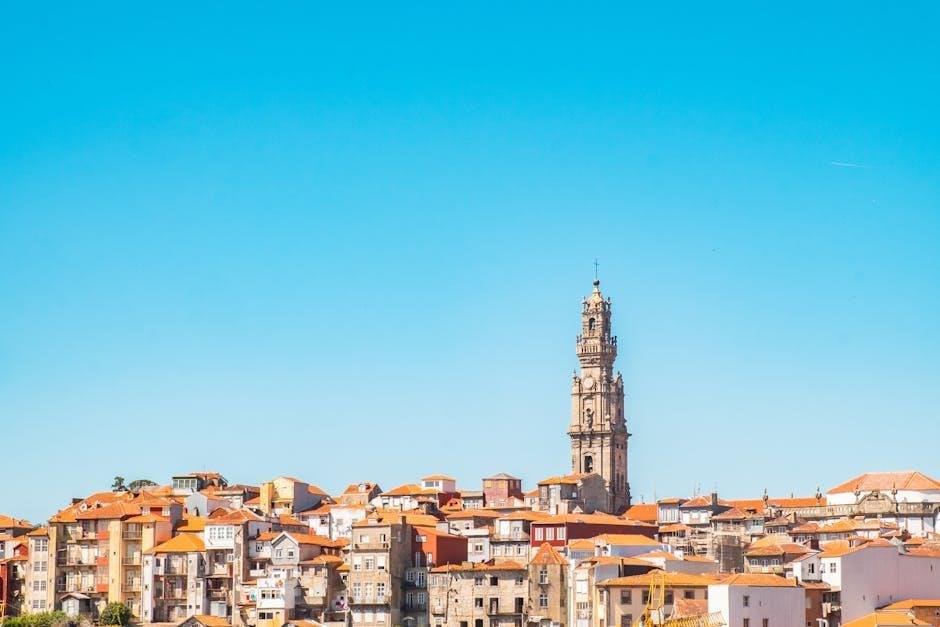Angolan literature reflects the nation’s cultural identity, blending traditional and modern influences․ It explores themes of identity, history, and society, offering unique narratives shaped by Angola’s rich heritage․
Overview of Angolan Literary History
Angolan literature traces its roots to the early 19th century, influenced by colonial dynamics and indigenous oral traditions․ The mid-20th century saw a surge in written works, with writers like José Luandino Vieira and Pepetela emerging as pivotal figures․ Their narratives often explored themes of identity, resistance, and social change․ The post-independence era brought a diverse range of voices, blending traditional folklore with modern storytelling․ Today, Angolan literature continues to evolve, with authors like José Eduardo Agualusa gaining global recognition․ This rich literary history is now accessible through various PDF resources, offering readers a gateway to explore the nation’s cultural and historical tapestry․
Key Themes in Angolan Literature
Angolan literature delves into themes of national identity, the clash between tradition and modernity, and the social realities of daily life․ Authors often explore the cultural heritage of Angola, blending folklore with contemporary issues․ The urban experience is a recurring motif, with cities portrayed as hubs of transformation and struggle․ Themes of resistance and resilience are also prominent, reflecting the nation’s history of colonialism and post-independence challenges․ Additionally, elements of the marvelous and supernatural are woven into narratives, enriching the storytelling with a unique African perspective․ These themes collectively paint a vivid picture of Angola’s diverse cultural landscape and its people’s enduring spirit․

Notable Angolan Writers and Their Works
Angola boasts a rich literary tradition with writers like José Luandino Vieira, Pepetela, and José Eduardo Agualusa, whose works explore cultural identity and societal challenges․
José Luandino Vieira: Major Works and Contributions
José Luandino Vieira is one of Angola’s most celebrated writers, known for his vivid portrayal of urban life and cultural identity․ His notable works include A Cidade e a Infância (1957) and A Vida Verdadeira de Domingos Xavier (1961)․ These narratives capture the essence of Luanda’s social dynamics, blending tradition with modernity․ Vieira’s writing often incorporates local dialects, enriching his stories with authenticity․ His contributions to Angolan literature lie in his ability to reflect the nation’s cultural and historical complexities through relatable characters and settings․ His work remains a cornerstone of Angolan literary heritage, offering insights into the country’s evolving identity and societal challenges․

Pepetela: A Critical Analysis of His Novels
Pepetela, a prominent Angolan writer, is renowned for his thought-provoking novels that delve into the nation’s socio-political landscape․ His works, such as Mayombe and O Quase Segredo, are celebrated for their intricate storytelling and critique of colonial and post-colonial realities․ Pepetela’s narratives often explore themes of identity, resistance, and social change, resonating deeply with Angolan experiences․ His writing blends traditional oral storytelling with modern literary techniques, creating a unique voice․ Through his novels, Pepetela challenges readers to reflect on Angola’s past and present, making him a pivotal figure in the country’s literary tradition․ His contributions continue to inspire new generations of writers and scholars․
Manuel Rui: Poetry and Prose in Angolan Context
Manuel Rui, a distinguished Angolan writer, has made significant contributions to both poetry and prose․ His works often explore themes of identity, culture, and social transformation, reflecting the complexities of Angolan society․ Rui’s poetry is known for its lyrical depth and emotional resonance, while his prose engages with the nation’s historical and contemporary challenges․ His writing style, which blends traditional storytelling with modern literary techniques, has earned him recognition both locally and internationally․ Rui’s ability to capture the essence of Angola’s cultural heritage and its evolution makes his works essential reading for understanding the country’s literary landscape․ His contributions remain vital in shaping Angolan literature’s future․
José Eduardo Agualusa: Modern Angolan Narrative
José Eduardo Agualusa is a prominent figure in modern Angolan literature, known for his innovative storytelling and exploration of historical and cultural themes․ His works, such as The Book of Chameleons and Rainy Season, blend historical narratives with contemporary issues, offering a unique perspective on Angola’s past and present․ Agualusa’s writing often delves into themes of identity, colonial history, and social change, resonating deeply with readers both in Angola and internationally․ His ability to weave intricate stories that connect the past with modern-day realities has earned him critical acclaim and numerous awards, including the International Dublin Literary Award․ Agualusa’s contributions have significantly shaped the modern Angolan narrative, making him a key voice in the nation’s literary landscape․

Themes in Angolan Literature
Angolan literature explores themes of identity, history, and societal transformation, blending traditional values with modern realities․ It delves into cultural heritage, urban life, and the interplay of the marvelous with everyday experiences․
Tradition and Modernity in Angolan Writing
Angolan literature seamlessly intertwines tradition and modernity, reflecting the nation’s cultural evolution․ Writers like José Luandino Vieira and Pepetela incorporate folklore and oral traditions into contemporary narratives, exploring societal changes․ By blending the richness of Angola’s past with its present realities, these authors create stories that resonate globally while preserving local identity․ This fusion not only highlights the country’s cultural depth but also addresses modern challenges, making Angolan literature a dynamic and evolving art form that bridges generations and continents․
The Role of Cities in Angolan Literary Works
Cities in Angolan literature often serve as central themes, reflecting the nation’s societal transformations․ Authors like José Luandino Vieira and Pepetela portray urban spaces as vibrant hubs of cultural and economic change․ Works such as A Cidade e a Infância highlight the complexities of city life, blending tradition with modernity․ These narratives often explore the tension between rural and urban identities, showcasing how cities like Luanda symbolize both progress and inequality․ Through their writings, Angolan authors use cities as metaphors for the nation’s journey, capturing the dynamic interplay between historical roots and contemporary challenges․ This urban focus enriches the literary landscape, offering insights into Angola’s evolving society․
The Use of the Marvellous in Angolan Stories

The marvellous plays a significant role in Angolan literature, often blending folklore and mythology with contemporary narratives․ Authors like José Eduardo Agualusa and Pepetela incorporate magical elements to explore themes of identity, culture, and history․ These narratives frequently juxtapose the extraordinary with everyday life, creating a unique storytelling tradition․ The use of the marvellous allows writers to delve into deeper societal and political issues, making their works both captivating and thought-provoking․ This approach not only reflects Angola’s rich cultural heritage but also offers a fresh perspective on its complex realities․ The marvellous in Angolan stories serves as a bridge between tradition and modernity, enriching the literary landscape with enchanting and meaningful tales․

Accessing Angolan Literary Works in PDF Format
Angolan literary works are increasingly available in PDF format, offering easy access to both classic and modern writings for students, professionals, and literature enthusiasts worldwide․
Free PDF Resources for Angolan Literature
Accessing Angolan literary works in PDF format has become more convenient, with numerous free resources available online․ Platforms offering downloadable books include academic repositories, cultural websites, and educational portals․ These resources feature works by renowned authors such as José Luandino Vieira, Pepetela, and Manuel Rui, among others․ Classic novels, poetry collections, and critical essays are widely accessible, enabling readers to explore Angola’s rich literary heritage․ Many of these PDFs are provided by universities, libraries, and cultural organizations, aiming to promote Angolan literature globally․ This accessibility has proven invaluable for students, researchers, and literature enthusiasts, fostering a deeper understanding of Angola’s cultural and historical narratives․
Downloading Classic and Modern Works
Downloading classic and modern Angolan literary works in PDF format is a convenient way to explore the nation’s rich cultural heritage․ Many classic novels, such as those by José Luandino Vieira and Pepetela, are available for free on academic and cultural websites․ Modern works by authors like José Eduardo Agualusa and Manuel Rui can also be accessed through digital libraries and educational platforms․ These resources are often provided by universities, cultural organizations, and publishing houses, ensuring that both seminal and contemporary texts are widely accessible․ This ease of access has democratized Angolan literature, allowing global readers to engage with its unique narratives and themes․ Additionally, downloadable PDFs cater to students, researchers, and enthusiasts alike, fostering a deeper appreciation for Angola’s literary traditions and innovations․

Cultural Significance of Angolan Literature
Angolan literature is vital to national identity, reflecting historical struggles and cultural richness․ It bridges tradition and modernity, fostering global recognition of Angola’s unique storytelling and intellectual heritage․
Impact on National Identity and Global Recognition
Angolan literature has profoundly shaped the nation’s identity by chronicling its history, cultural traditions, and societal transformations․ Authors like José Luandino Vieira and Pepetela have crafted narratives that resonate deeply with Angola’s collective memory, fostering pride and unity․ Their works, often exploring colonialism and independence, have become cornerstones of national heritage․ Globally, Angolan writers have gained recognition for their unique storytelling, blending local traditions with modern themes․ José Eduardo Agualusa, for instance, has earned international acclaim, highlighting Angola’s literary richness․ This dual impact strengthens cultural pride domestically while introducing Angola’s diverse voices to the world, bridging gaps and enriching global literary landscapes with its distinctive perspectives․
Angolan literature is a vibrant reflection of its cultural identity, blending tradition and modernity․ Its writers have left a lasting legacy, enriching global literary landscapes․
Final Reflections on Angolan Writers and Their Legacy
Angolan writers have left an indelible mark on the nation’s cultural identity, blending traditional narratives with modern perspectives․ Their works, such as those by José Luandino Vieira and Pepetela, capture the essence of Angola’s history and society․ These authors have explored themes like identity, colonialism, and urban life, offering profound insights into the Angolan experience․ Their legacy is not only preserved in printed form but also through accessible PDF resources, making their literature reachable to a global audience․ This accessibility ensures that future generations can engage with their stories, fostering a deeper understanding of Angola’s rich cultural tapestry and its contributors to world literature․

